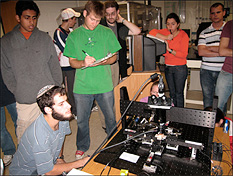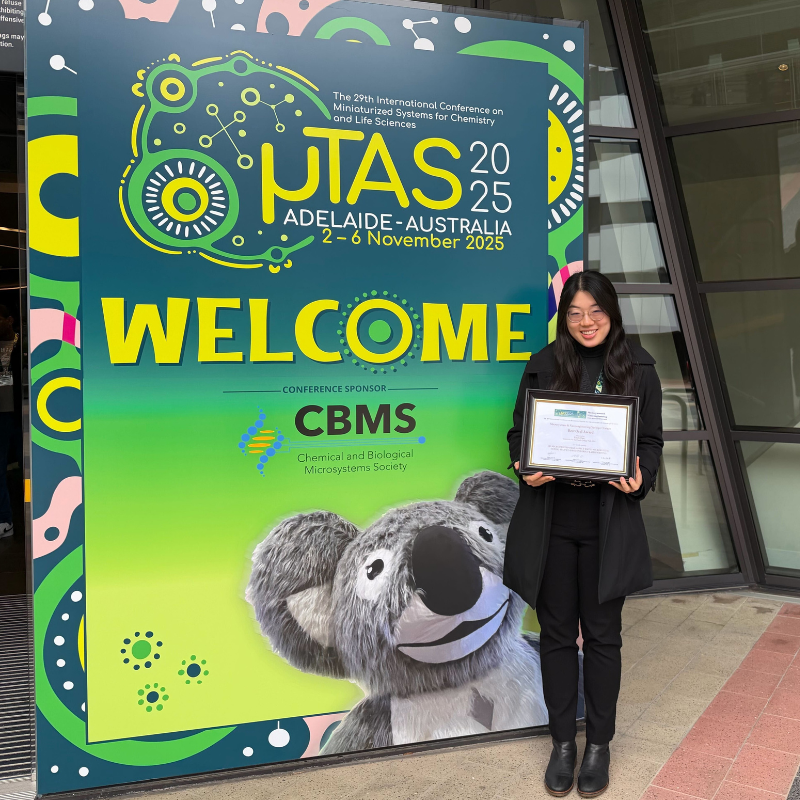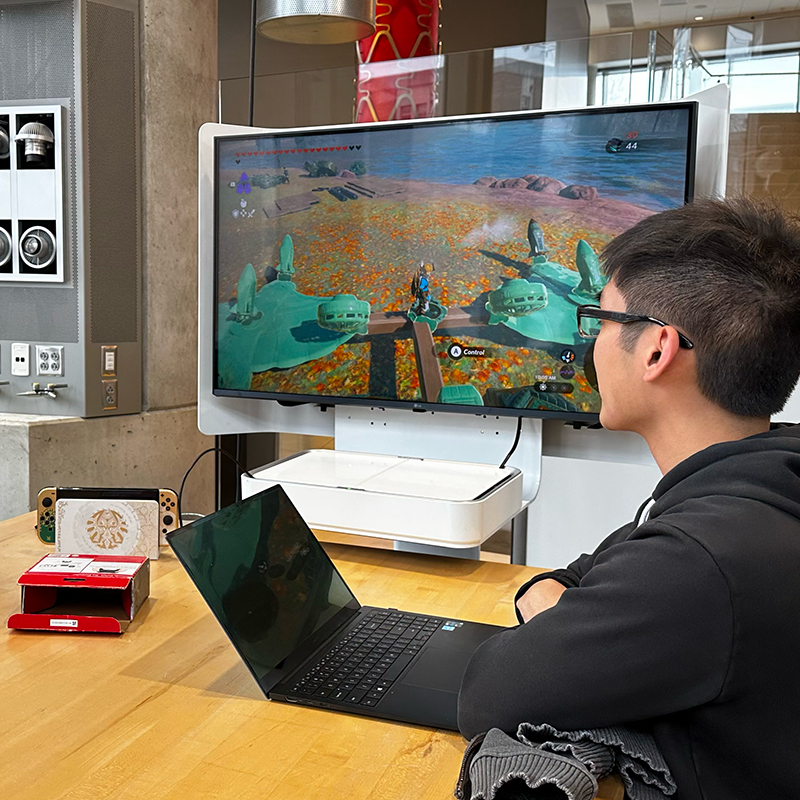News Story
NSF Boosts Nanotech Curriculum

Students engaged in biaxial micro-tensile testing of a thin film specimen during an undergraduate materials science course held in new Modern Engineering Materials Instructional Laboratory (MEMIL).
Two significant experimental systems were assembled to give students an enhanced laboratory experience: a pair of micro-tensile testers, used for determining the mechanical properties of micron-scale devices and materials; and an integrated nanoindentation/scanning probe microscope (SPM) testing system, used for measuring the hardness and elasticity of materials at the nanoscale, and for imaging samples.
The equipment forms the core of the new Modern Engineering Materials Instructional Laboratory (MEMIL). Located in the Jeong H. Kim Engineering Building, the 2241ft2 facility serves as a shared undergraduate lab for materials testing and characterization and is used to accommodate the needs of multiple departments within the Clark School.
Bonenberger explained the importance of the new equipment to students' educational experiences: "Materials' properties are different at the micron and nanoscales—it seems like you have to rewrite the laws of physics. Things that are unimportant at the macro scale suddenly become very relevant. This equipment allows students to understand that. It also exposes them to concepts and tools that can be used for cutting edge research. It's a hook to get them interested in materials."
Learn More:
Bruck's junior-level ENME 382: Engineering Materials and Manufacturing Processes class was one of those that benefited from the new equipment and curriculum. Below are two examples of lab modules created for it as part of the overall project:
- Basic Mechanical Properties at Multiple Length Scales (PDF)
- Hardness Testing at Multiple Length Scales (PDF)
Visit the NSF's CCLI Program web site »
Visit the MEMIL web site »
Published November 1, 2007









